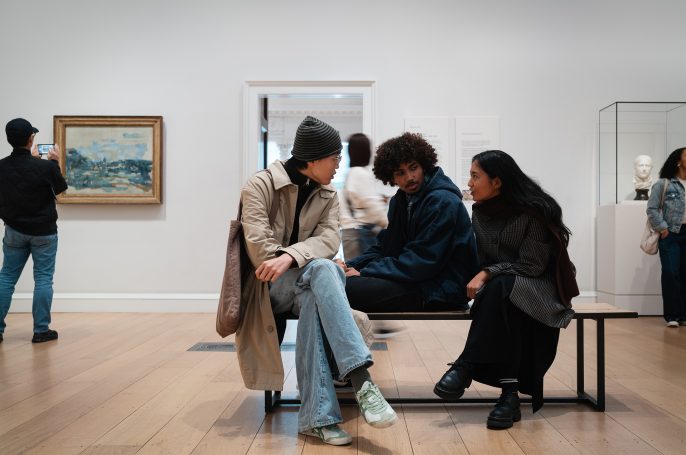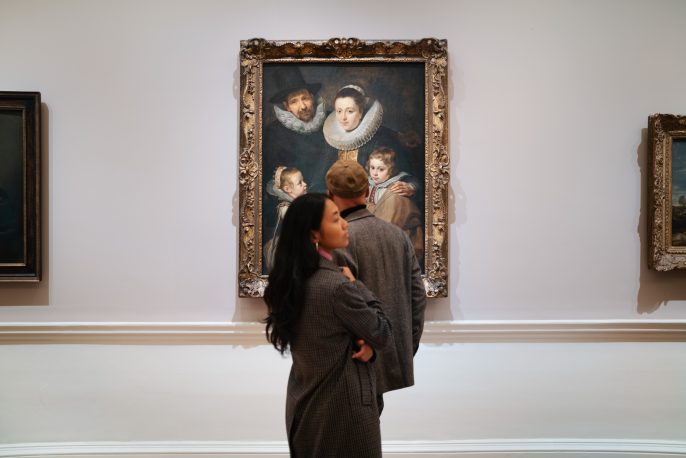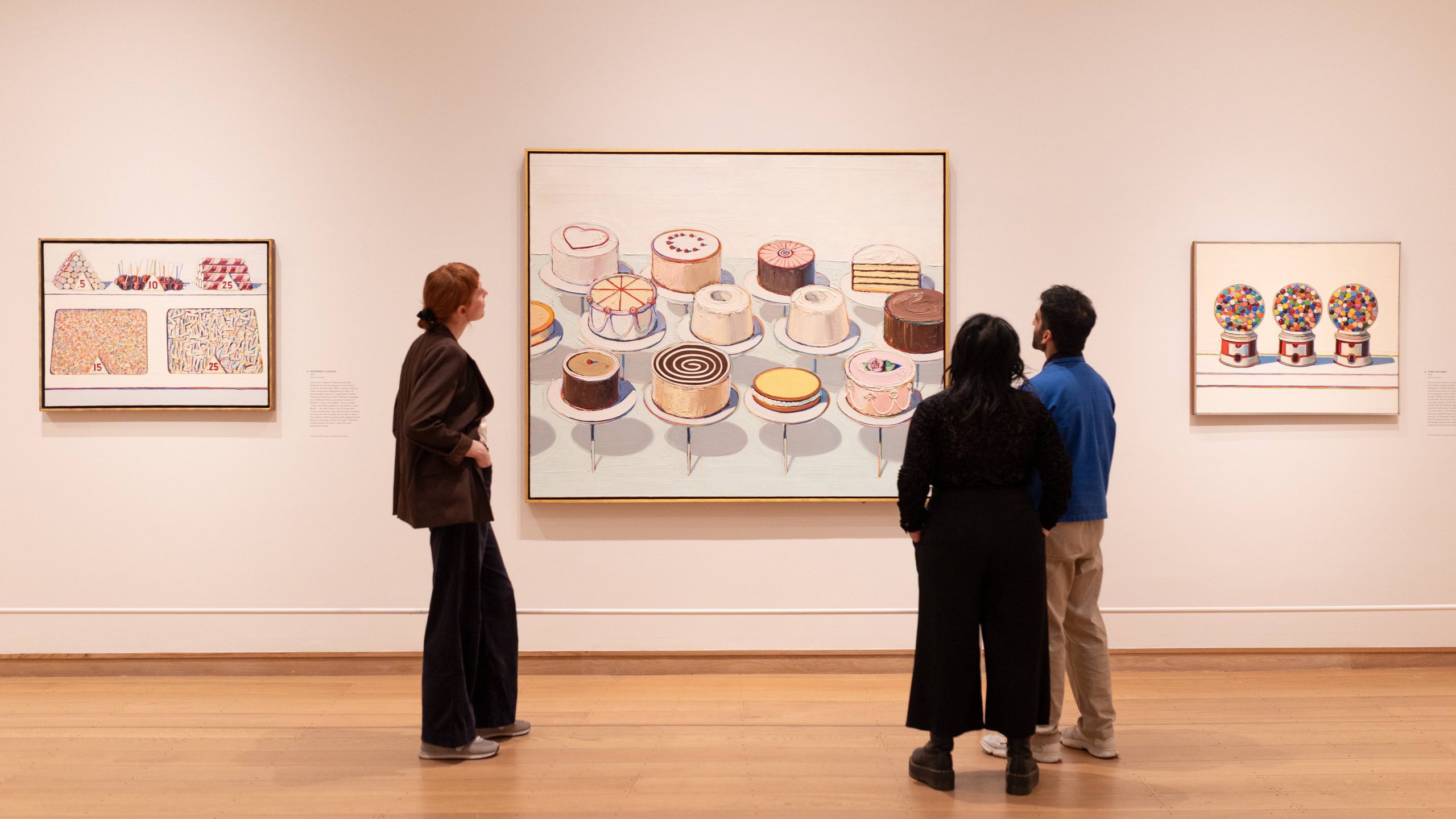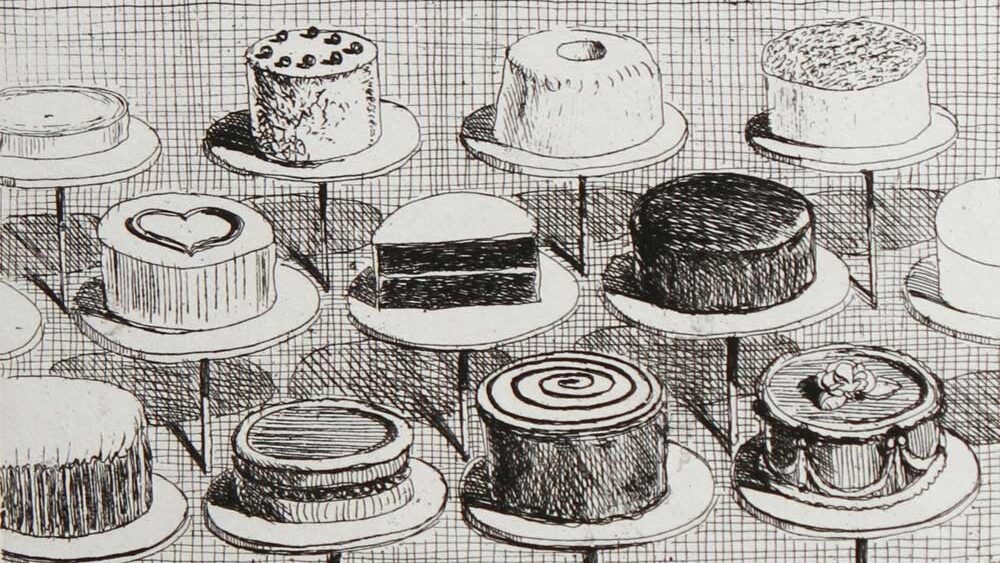The Griffin Catalyst Exhibition: Wayne Thiebaud. American Still Life at The Courtauld Gallery will be the first-ever museum show of Wayne Thiebaud’s work in the UK. It will present Thiebaud’s remarkable, vibrant and lushly painted still-lifes of quintessentially post-war American subjects, from diner food and deli counters to gumball dispensers and pinball machines. These are the paintings with which Thiebaud made his name in the United States in the early 1960s. Here’s five things to know about the celebrated modern artist and his works.
He found fame with a slice of pie
At the beginning of the 1960s, Thiebaud developed a unique style of painting, devoting himself to depicting common objects of American life, from pieces of cherry pie to gumball machines and deli counters. He also liked how a slice of pie on a plate – essentially, a triangle on top of a circle, as he said – represented the building blocks of a composition. He exhibited these still lifes to great acclaim in 1962. His paintings of pies and cakes were especially admired and bought by major collectors and museums, including the Museum of Modern Art in New York. This marked the beginning of his reputation as a major figure of modern painting.
A painter, not a Pop artist
Thiebaud was deeply engaged with everyday objects of popular culture, like pinball machines and candy counters, and was often exhibited alongside Pop artists of the period, such as Andy Warhol and Roy Lichtenstein. However, Thiebaud disliked being thought of as a Pop artist and considered himself a painter in the tradition of Jean-Siméon Chardin and Paul Cézanne. Thiebaud’s lushly painted works that vividly bring their subjects to life are very different from the cool detachment, slick surfaces and appropriation of commercial graphics that are features of Pop art.
From Disney to diners
Thiebaud had a varied career before devoting himself fully to painting in the 1950s. He worked as a cartoonist (and even did a summer internship at Walt Disney Studios), an illustrator and an art director. Thiebaud greatly valued his training in commercial art and design, which he thought helped him achieve visual power and clarity in his paintings when he turned his attention to painting the world of modern American diners and delis.
An American Still Life
Thiebaud thought of his work as recasting the genre of still life for the modern age. He was influenced by great painters of the past, such as Chardin, Cézanne and Édouard Manet. Thiebaud admired how their still-life paintings spoke powerfully of their times and he sought a distinct language to paint his own era. One touchstone painting for Thiebaud was Manet’s A Bar at the Folies-Bergère (Courtauld Gallery). This famous depiction of consumer culture in nineteenth-century Paris, with its display of newly available items such as Bass beer, champagne and peppermint liqueur, has fascinating parallels with Thiebaud’s paintings of the deli counters and diner displays of post-war America.
A devoted teacher
Thiebaud was teaching in the art department at the University of California, Davis, near his home in Sacramento when he became famous in the 1960s. Rather than giving up his teaching position, Thiebaud remained devoted to it and continued to teach generations of art students at Davis throughout his very long career. He remained associated with the University until his death in 2021 at the age of 101. Thiebaud felt that his art was continually reinvigorated by teaching others to draw and paint.







